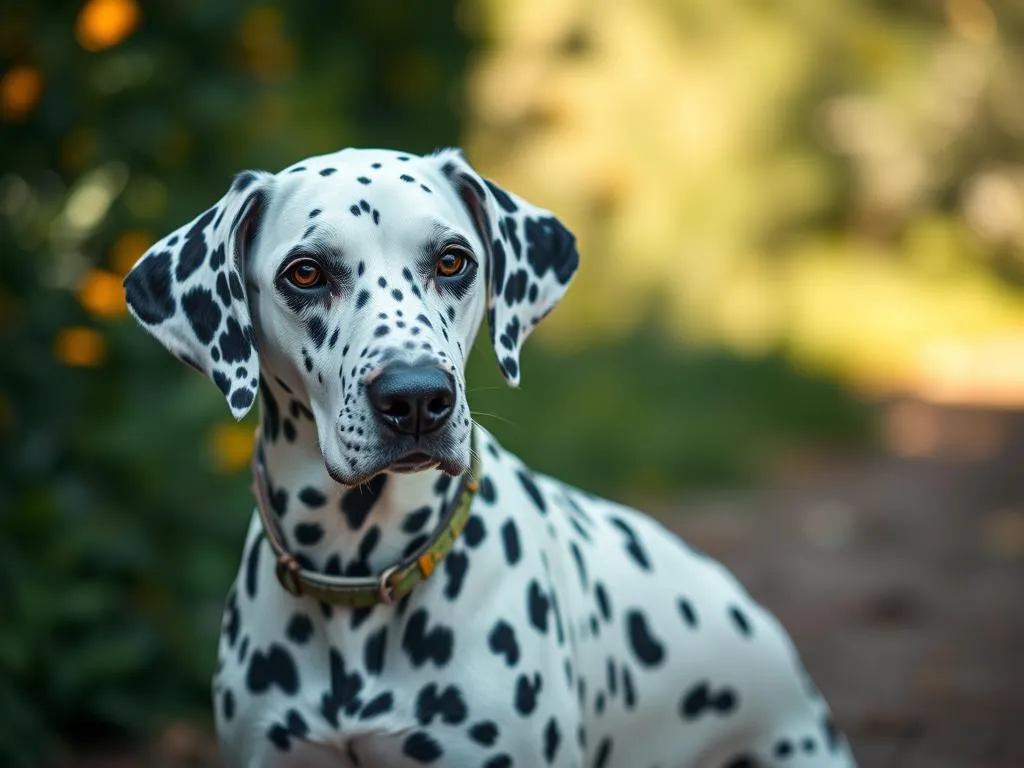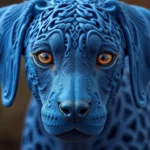
Introduction
Dalmatians, known for their striking black or liver-spotted coats, have a rich historical background that stretches back centuries. Originally bred as carriage dogs and firehouse mascots, they have served various roles in society. However, despite their fascinating history and unique appearance, Dalmatians have garnered a somewhat bad reputation over the years. This article delves into the reasons behind this negative perception, aiming to provide a balanced view of this beloved breed.
Understanding the Dalmatian Breed
Historical Background
The Dalmatian breed is believed to have originated in the region of Dalmatia, now part of Croatia. These dogs were utilized for various purposes, including as carriage dogs, where they protected horse-drawn carriages, and as firehouse mascots, where their unique spotted coats made them easily recognizable. Their history is intertwined with various cultures, making them a symbol of loyalty and courage.
Physical Characteristics
Dalmatians are medium-sized dogs, typically weighing between 45-70 pounds. Their most notable feature is their distinctive coat, which is short, dense, and covered in black or liver spots. These spots emerge as the puppies grow older, creating their iconic look. However, Dalmatians are also prone to certain health issues, such as deafness and skin problems, which can contribute to their overall behavior and temperament.
Temperament and Behavior
Known for their high energy and intelligence, Dalmatians are often described as friendly, outgoing, and playful. However, their temperament heavily relies on proper socialization and training. Without adequate exposure to various environments and experiences during their formative years, they may develop behavioral issues, contributing to the bad reputation associated with the breed.
Factors Contributing to the Bad Reputation
Media Influence
The portrayal of Dalmatians in media, particularly in films like “101 Dalmatians,” has significantly shaped public perception. While the movie showcased the breed’s charm and appeal, it also led to an increase in popularity without educating potential owners about the breed’s needs. Consequently, many inexperienced owners sought Dalmatians without understanding their high energy levels or training requirements, leading to misunderstandings and negative experiences.
Misunderstanding of Behavior
Many misconceptions about Dalmatians stem from misunderstandings of their behavior. For instance, people often mistake their high energy and boisterousness for aggression. Compared to other breeds, Dalmatians may appear more hyperactive, leading to a false narrative of aggression. This misconception is further perpetuated by anecdotal evidence and selective reporting on dog behavior, creating an unjust stigma around the breed.
Role of Ownership and Training
The role of responsible ownership cannot be overstated when discussing the bad reputation of Dalmatians. Many issues arise from a lack of training and socialization, leading to behavioral problems that reinforce negative stereotypes. Owners who fail to provide consistent training may experience challenges in managing their Dalmatians, contributing to the breed’s reputation as difficult or aggressive.
Specific Concerns About Dalmatians
Aggression Myths
A common myth surrounding Dalmatians is that they are inherently aggressive. However, research indicates that aggression is often linked to ownership and environmental factors rather than breed-specific tendencies. According to dog bite statistics, many factors contribute to aggressive behavior, including improper training, poor socialization, and the owner’s behavior. Thus, labeling Dalmatians as aggressive overlooks the complexity of canine behavior.
High Energy Levels
Dalmatians are known for their high energy levels, requiring regular exercise and mental stimulation to thrive. Without appropriate outlets for their energy, they can become bored and destructive, leading to undesirable behaviors. This high-energy requirement can be challenging for owners who may not be prepared to meet their needs, further contributing to their negative reputation.
Health Issues and Their Impact
Dalmatians are prone to certain genetic health issues, such as deafness (affecting around 30% of the breed) and skin conditions. These health problems can influence behavior, as discomfort or pain may lead to stress and irritability. Moreover, when health issues are not addressed, they can exacerbate behavioral challenges, reinforcing the bad reputation that Dalmatians often face.
The Importance of Responsible Ownership
Choosing the Right Dog Breed
Before bringing a Dalmatian into your home, it’s crucial to assess whether their characteristics align with your lifestyle. Dalmatians thrive in active households where they can receive regular exercise and mental engagement. Potential owners should consider their ability to commit time and resources to training, socialization, and exercise before deciding on this breed.
Training and Socialization
Effective training and socialization are vital for Dalmatians to develop into well-adjusted pets. Positive reinforcement techniques work best for this breed, as they respond well to encouragement and rewards. Early socialization with other dogs, people, and various environments is essential to help Dalmatians grow into confident and friendly adults. Ongoing training and mental stimulation can also prevent behavioral issues from developing.
Community Resources
Numerous resources are available to Dalmatian owners, including local training classes and dog clubs. These organizations provide valuable support and guidance for new owners, helping them understand the breed’s unique needs. Online communities and forums can also offer insights and share experiences among Dalmatian enthusiasts.
Positive Aspects of Dalmatians
Loyal Companions
Despite their bad reputation, many Dalmatians are known for their unwavering loyalty and affection. Owners often share heartwarming stories of their Dalmatians’ loving nature and strong bonds with their families. These tales highlight the breed’s potential for companionship and loyalty when provided with proper care and training.
Unique Abilities
Dalmatians possess unique skills and abilities, making them exceptional in various roles. They excel in agility and obedience competitions, showcasing their intelligence and athleticism. Additionally, many Dalmatians serve as therapy dogs and assistance animals, demonstrating their capacity for empathy and support. These qualities contradict the negative stereotypes often associated with the breed.
Changing Perceptions
Efforts are underway to improve the reputation of Dalmatians within communities. Organizations dedicated to responsible ownership and breed education work to dispel myths and promote positive aspects of the breed. Community programs focus on training and socialization, helping to foster a better understanding of Dalmatians and their needs.
Conclusion
In summary, the bad reputation of Dalmatians often stems from misconceptions, media portrayals, and the responsibilities of ownership. Understanding the breed’s history, characteristics, and unique needs is crucial in fostering a positive relationship with these remarkable dogs. By promoting responsible ownership, effective training, and a balanced perspective, we can change the narrative surrounding Dalmatians and highlight their true potential as loyal and loving companions.
By educating ourselves and others, we pave the way for a better understanding and appreciation of the Dalmatian breed, ensuring that their legacy continues to thrive in a positive light.









